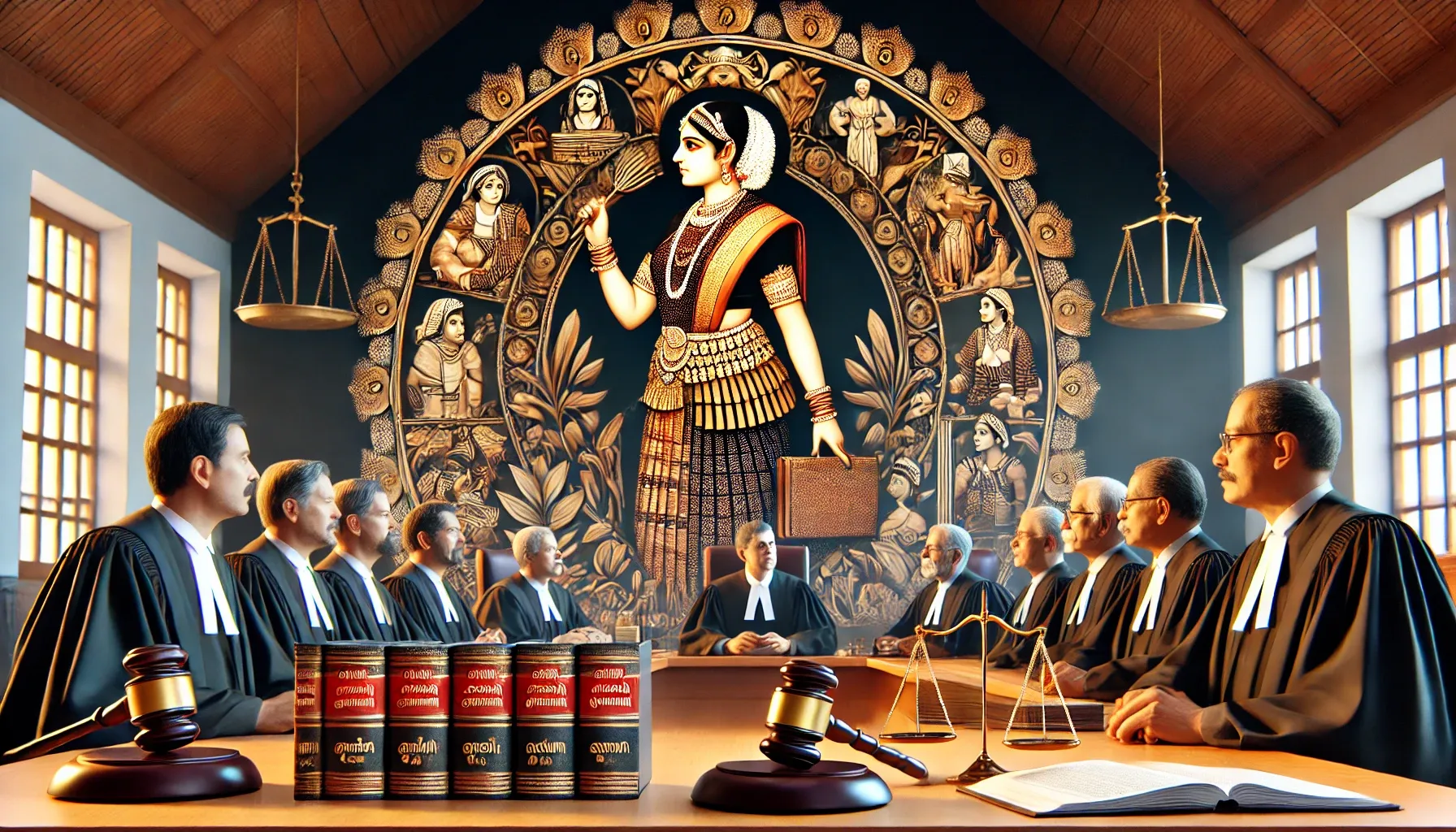The Supreme Court ruled that property acquired by a woman and her children post-partition under Kerala's Marumakkathayam law remains joint tharwad property, emphasizing the transformative nature of partition.

In a landmark judgment under Kerala’s Marumakkathayam law, the Supreme Court clarified the status of property acquired by a woman and her children after partition. The bench of Justice CT Ravikumar and Justice Sanjay Karol ruled that such property remains part of the tharwad unless explicitly partitioned. The case also explored whether a single woman’s property post-partition, without heirs, is separate or tharwad property, addressing longstanding legal ambiguities.
Key Issues Before the Court
- Ownership Status Post-Partition:
Whether property acquired by a female member and her children after a partition retains its tharwad character or becomes their separate property. - Single Female Ownership:
Whether property obtained by a single female post-partition, without a legal heir, remains tharwad property or transforms into her individual property.
Analysis of Precedents
The Court engaged in a detailed review of the Kerala High Court’s Full Bench decision in Mary Cheriyan & Anr. v. Bhargavi Pillai Bhasura Devi & Anr. (1967).
- Majority View:
The majority opinion held that property allocated to a single female at the time of partition remains part of the tharwad. It reasons that such property constitutes a single-member thavazhi, preserving future claims by members through birth or adoption. - Minority View:
The dissenting view argued that property acquired by a single female during partition becomes her separate property, as partition inherently transforms joint property into individual ownership.
Supreme Court’s Decision
- The Supreme Court, in a judgment authored by Justice Sanjay Karol, upheld the minority view from the Mary Cheriyan case.
- Partition Changes Ownership:
The Court emphasized that partition dissolves the joint nature of property, creating individual ownership. It stated, “Partition is a process by which joint ownership is reduced to individual ownership, severing the joint status and giving each member their respective share.” - Hindu Female Ownership Post-Partition:
The Court ruled that property allocated to a female member during partition becomes her separate property. Even if she later has children, the property remains individually owned and does not revert to tharwad ownership. - Example Illustration:
To elucidate the concept, the Court used a landownership example:
“A parcel of land owned by fourteen people, after partition, may result in two people separating and solely owning their respective portions. This changes ownership from joint to individual.”
Application to the Case
In this specific case:
- The female member in question was not single at the time of partition and had a legal heir.
- The Court ruled that the property allocated to her retained its tharwad character, as the existence of a legal heir maintained its joint family status.
Key Takeaways from the Judgment
- Tharwad vs. Separate Property:
The ruling reaffirms that partition fundamentally alters ownership. For single females, the property becomes separate post-partition. However, if heirs exist, the tharwad character may be retained. - Alignment with Mitakshara Principles:
The Court gave weight to Mitakshara principles, emphasizing the individual rights arising from partition over preserving communal ownership. - Precedent Overturned:
The majority opinion in the Mary Cheriyan case was explicitly rejected, marking a shift in legal interpretation.
Court's Observations on Partition
- The judgment underscored the transformative nature of partition:
“Partition is not merely physical separation but a severance of joint ownership, creating independent rights that devolve upon the heirs.” - This reasoning ensures clarity in property ownership, especially for women under traditional family systems like Marumakkathayam law.
Appearances in Court
- For Appellants:
Senior Advocates C.S. Vaidyanathan and Chitambaresh, supported by Advocate A. Raghunath. - For Respondents:
Advocates Vishnu Shankar, Atul Shankar Vinod, Dileep Pillai, and Kannan Gopal Vinod, led by Advocate M.P. Vinod.
Case Title: RAMACHANDRAN & ORS. Versus VIJAYAN & ORS.
Attachment:





